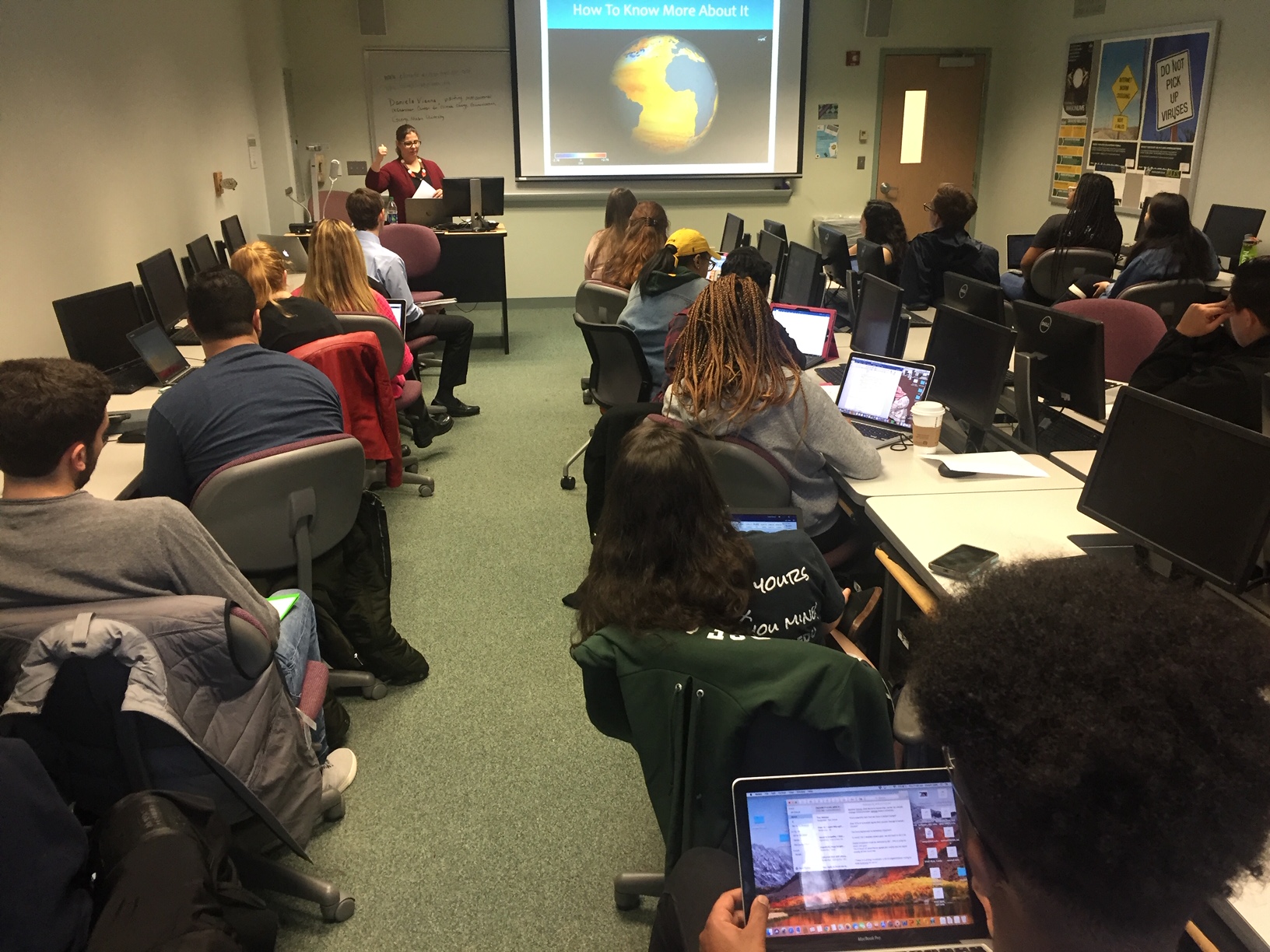9 September 2019
Getting outside the comfort of the journalism classroom to encourage science
Posted by Shane Hanlon

Post-doctoral researcher Daniela Vianna started her research in Brazil as a journalist. Now she’s a scientist sharing what she’s learned. She’s engaging future journalists about how to find data to support national and local stories about climate-change stories. Credit: Christina Tyler Wenks
By Christina Tyler Wenks
George Mason University’s Center for Climate Change Communication Director Ed Maibach suggested I work with post-doctorate student Daniela Vianna to measure undergraduate students reporting abilities. Through the university’s Stearns Self-Study Program, I studied my own teaching methods with the goal of boosting the quality of students’ written work and helping them produce a portfolio of work to aid professional development.
Vianna’s research showed that often science journalism isn’t taught until graduate school, but most journalism graduates don’t pursue grad school and/or science-reporting coursework as an undergrad. Vianna’s findings concluded that often scientists don’t know how to make research more accessible to the average media consumer or get news published outside of scientific journals. Scientists need media’s help to relate science to everyone and every-day use.
Journalism classes require conducting interviews and background research to shape a story. Students found multiple perspectives and created supporting visuals and captions, infographics, related podcasts and supporting video packages. We found that encouraging students to cover unfamiliar topics aligning with student career goals resulted in undergraduates producing better content.
We encouraged students to start by interviewing scientists about climate change. We encouraged undergraduates to think beyond textbook exercises and report real news stories, seek expert sources, and produce more complete, meaningful content for professional growth.
Vianna’s research confirmed what my teaching experience demonstrated — that undergraduate journalism students are more engaged and inclined to pursue well-researched, useful stories when pushed outside the comfort zone of the classroom. We shared the findings at the American Geophysical Union Fall Conference, December 2018.
A hands-on approach, providing content ownership while gaining reporting experience and building relationships, and building a professional portfolio generated more published works and a willingness — sometimes a new desire — to cover science and climate change that wasn’t apparent before students started basic journalism-writing classes. Some students also experienced that their efforts matter. Local science experts benefited by having their research efforts shared in stories, too.
-Christina Tyler Wenks is an adjunct professor of journalism and public relations in George Mason University’s Department of Communication in Fairfax, Virginia. The journalist enjoys engaging in citizen science, flours and flowers, rocket launches, and launching careers.










 The Plainspoken Scientist is the science communication blog of AGU’s Sharing Science program. With this blog, we wish to showcase creative and effective science communication via multiple mediums and modes.
The Plainspoken Scientist is the science communication blog of AGU’s Sharing Science program. With this blog, we wish to showcase creative and effective science communication via multiple mediums and modes.